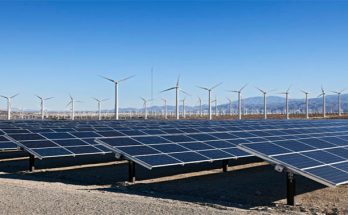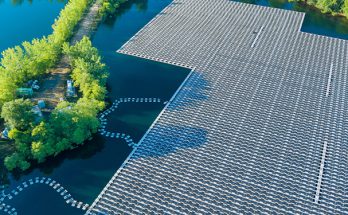 Modern integrated solar street lighting along Fort Jesus, Gitamabaya, Kwa Kibugi, and Walakishi Road has been put into service by Kiambu Governor Paul Kimani Wamatangi to improve security measures in the region.
Modern integrated solar street lighting along Fort Jesus, Gitamabaya, Kwa Kibugi, and Walakishi Road has been put into service by Kiambu Governor Paul Kimani Wamatangi to improve security measures in the region.
As part of the ‘Angaza Kiambu program’, which was introduced earlier this year, all streetlights in the county will run on solar energy in an effort to completely transform the county’s energy infrastructure.
It is anticipated that the program will result in significant maintenance cost savings and the elimination of monthly power payments, saving the county millions of shillings yearly.
Wamatangi launched the ambitious endeavor by saying, “While we are not completely disconnecting from the Kenya Power grid, we aim to progressively transition to solar energy.”
Powered by solar energy, these street lights deliver steady illumination, making the streets safer and more accessible at night. Residents’ quality of life and sense of security are improved by this upgrade, which offers dependable and environmentally friendly lighting options.
The governor urged everyone present at the launch to support the county’s move to solar energy and mentioned that county government will be responsible for paying utility bills since government organizations like Kenya Power, Kenya Urban Roads Authority, Kenya Rural Roads Authority, and the Rural Electrification and Renewable Energy Corporation (REREC) have been installing street lights all over the county.
He pointed out that as a result, the County Government now faces enormous electricity costs, sporadic disruptions from blackouts, and disconnections from service because unpaid bills are outstanding.
Solar street lights last 20 years, compared to a maximum of 5 years for grid-connected lights, and are less prone to vandalism and insect swarming. They are also more dependable, efficient, and require less maintenance, according to Virginia Kahonge, Chief Officer of Public Works and Utilities.
Wamatangi also started building a road that is roughly 2 km long and has 107 integrated solar street lights. The road is considered bitumen-standard. The route will have two loops: one will go from Masaku-Thuita Ocean Friends Church to SGR Small Lagos, while the other will start from Masaku-Kiambu route at Maina Chairman Place. Both loops will be in the Gitambaya neighborhood.
The State Department of Housing and Urban Development and the World Bank have provided all of the funding for this project, which is being carried out by the Kiambu County Government.


